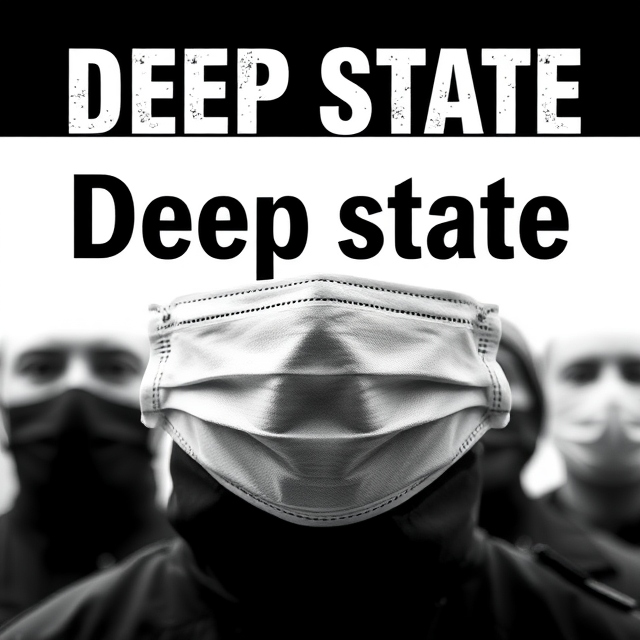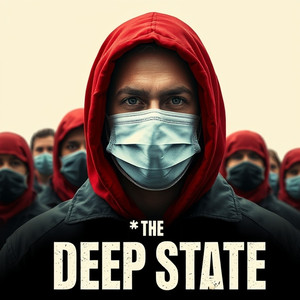
- Deep State’s Global Influence: The Deep State consists of influential families, corporations, and agencies that manipulate global politics, economics, and social systems to centralize power.
- Threat to National Sovereignty: Through orchestrating coups, economic manipulation, and crises, the Deep State undermines independent governance and erodes borders.
- Instruments of Control: It utilizes international organizations, media, and ideological frameworks like capitalism and communism to enforce a unipolar global system.
- Bharat’s Defense Strategy: Emphasizing self-reliance, cultural revival, independent media, and indigenous knowledge can safeguard Bharat’s sovereignty against globalist agendas.
Decoding the Deep State: Its Operations and Influence on Global Geopolitics
In Bharat, an ongoing debate about the influence of the “Deep State” has reignited discussions about its shadowy operations and far-reaching implications. What exactly is the Deep State? How does it operate, and how does it impact the sovereignty of nations, including Bharat? This article aims to decode the concept of the Deep State, examining its theological roots, tools of control, and how it systematically dismantles national sovereignty. We also explore strategies to counter its influence.
Understanding the Deep State: Players and Objectives

The term “Deep State” refers to an entrenched network of powerful individuals, families, corporations, and bureaucracies operating behind the scenes to control governments, policies, and global markets. This hidden apparatus transcends political boundaries, seeking to centralize power and wealth in the hands of a select few.
Key players in the Deep State led by families like the Rothschilds, Rockefellers, few more who collectively control vast portions of global wealth and resources. Corporate giants in industries like defence, pharmaceuticals, agriculture, food and technology further bolster their influence. Intelligence agencies like the CIA, Mossad and MI6 serve as operational arms, executing covert missions and shaping geopolitical outcomes.
The overarching goal of the Deep State is to establish a One World Order—a unified global system featuring a singular government, currency, military, and economic framework. This vision aligns with their objective to consolidate resources and dominate global markets.
Eroding National Sovereignty: A Systematic Takeover
One of the most insidious aspects of the Deep State is its systematic dismantling of national sovereignty. This is achieved through a multifaceted strategy that targets political, economic, and social structures within nations.
Orchestrating Coups and Regime Changes: The Deep State has been instrumental in orchestrating coups and regime changes to install puppet governments that align with their agenda. In the 20th century alone, numerous democratically elected leaders were overthrown under the guise of “protecting democracy.” For instance:
- In Iran (1953), the CIA orchestrated a coup against Prime Minister Mohammad Mossadegh to secure Western control over oil reserves.
- In Chile (1973), Salvador Allende was ousted to pave the way for neoliberal economic policies favourable to global corporations.
- Similar interventions in Afghanistan, Bangladesh, Nepal, Pakistan, Guatemala, Congo, and Vietnam highlight a pattern of toppling governments that resist globalist agendas.
Economic Warfare: Financial institutions like the International Monetary Fund (IMF) and World Bank are used as instruments of control. By providing loans with crippling terms, these organizations trap nations in cycles of debt, forcing them to adopt policies that favour globalist interests over local needs. Developing nations often lose control over their natural resources and industries as part of “debt restructuring.”
Creating and Funding Terrorist Organizations: Groups like the Taliban, Al-Qaeda, and ISIS have been covertly supported to destabilize regions and justify military interventions. These conflicts serve to weaken nations, making them reliant on external powers for security and economic stability.
Wars and Crises for World Order: The Deep State thrives on chaos, engineering wars and crises to redraw geopolitical boundaries and secure access to strategic resources. The Iraq War (2003) and interventions in Libya, Gaza and Syria demonstrate how fabricated narratives, such as weapons of mass destruction, are used to justify military invasions.

Think Thanks and Subverting Political Systems: Think tanks and lobbying groups such as the Round Table, Bilderberg Group, Council on Foreign Relations (CFR), the Trilateral Commission, and Chatham House – The Royal Institute of International Affairs are often seen as pivotal forces in advancing the agenda of a one-world government. These organizations are believed to wield substantial influence over major media outlets, academic institutions, and public narratives, shaping discourse to align with globalist objectives. A key aspect of their strategy involves infiltrating political systems to steer decision-making processes. By leveraging lobbying efforts, campaign financing, and the policy influence of think tanks like the CFR, they ensure that government actions and legislative frameworks align with their goals. In Bharat, parliamentary democracy has been characterized as particularly vulnerable to such subversion, making it a potential target for external manipulation and control.
Theology and Ideology: The Deep State’s Worldview The Deep State’s ideological framework often stems from Abrahamic theological principles, emphasizing world dominance through a unipolar global system. Zionist elements within this structure aim to establish “Greater Israel” and reconstruct Solomon’s Temple, symbolizing their vision of centralized power.
This ideology advocates for:
- Global Governance: The erosion of borders and national identities.
- Secularism: The removal of religion and cultural values to weaken societal cohesion.
- Global Economy: A singular market dominated by elite corporations.
Instruments of Control: Capitalism, Communism, and International Bodies
The Deep State masterfully controls the ideologies like Capitalism and Communism to achieve its goals. Capitalism promotes consumerism and wealth concentration, while Communism dismantles traditional societal structures, paving the way for centralized governance. Despite their ideological differences, both systems serve as tools for the Deep State to destabilize nations and consolidate control.
International organizations such as the United Nations, NATO, WHO, IMF, and World Economic Forum (WEF) are instrumental in implementing the Deep State’s agenda. These bodies enforce globalist policies under the preteens of promoting peace, development, and health but often at the expense of local autonomy.
Controlling Media, Academia, and Society

The Deep State maintains its grip on power through control over critical societal pillars:
- Media: Narratives are shaped to align with globalist interests, suppressing dissent and alternative viewpoints.
- Academia: Education systems are restructured to prioritize globalist ideologies over indigenous knowledge and traditions.
- Healthcare: Crises like pandemics are exploited to enforce centralized control and surveillance.
Defending Sovereignty: Bharat’s Path Forward
To counter the Deep State’s influence, Bharat must focus on self-reliance and cultural resurgence. A Bharat-centric approach emphasizes:
- Economic Independence: Building domestic industries and reducing foreign dependencies.
- Cultural Revival: Strengthening spiritual and cultural roots to foster unity.
- Independent Media and Technology: Developing platforms free from external control.
- Education and Research: Encouraging indigenous knowledge systems and innovation.
Bharat’s journey towards Atma Nirbhar (self-reliance) is not just an economic imperative but a cultural and philosophical one. By reclaiming sovereignty over its resources, policies, and narratives, Bharat can lead the way in resisting the Deep State’s globalist agenda.
Further Readings:
- Ferguson, Niall. The House of Rothschild: The World’s Banker (Volumes I and II).
- Collier, Peter, and Horowitz, David. The Rockefellers: An American Dynasty.
- Iran 1953 Coup: Kinzer, Stephen. All the Shah’s Men: An American Coup and the Roots of Middle East Terror.
- Creation of Taliban and Al-Qaeda: Rashid, Ahmed. Taliban: Militant Islam, Oil, and Fundamentalism in Central Asia.
- Perkins, John. Confessions of an Economic Hitman.
- United Nations and NATO: Chossudovsky, Michel. The Globalization of Poverty and the New World Order.
- WHO and Global Health Policy: Godlee, Fiona. “WHO in Crisis.” The BMJ, 2014.
- Herman, Edward S., and Chomsky, Noam. Manufacturing Consent: The Political Economy of the Mass Media.
- Bilderberg Group and CFR: Estulin, Daniel. The True Story of the Bilderberg Group.
- Schumpeter, Joseph A. Capitalism, Socialism, and Democracy.
- Dershowitz, Alan M. The Case for Israel.

So true—this ‘global agenda’ is just a fancy way of saying, ‘We’ll decide what’s best for you.’ Scary how sovereignty is getting trampled. Great breakdown!
Eye-opening read! The deep state isn’t a conspiracy theory anymore, it’s a playbook. Time to connect the dots